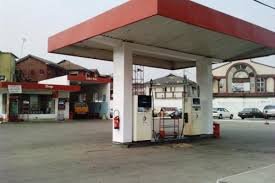Kano-Maradi Railway: FG asks contractor to procure gas engines
ABuJA – The Federal Government has asked the contractor handling Kano-Maradi railway project to consider using gas engines instead of diesel engines for the rail line rolling stock and more environmentally-friendly operations.
The Permanent Secretary, Federal Ministry of Transportation, Dr Magdalene Ajani, made the request on Monday in Abuja while signing the agreement on behalf of the federal government with Mota-Engil Nigeria Limited.
The News Agency of Nigeria (NAN) reports that Mota-Engil Nigeria Limited is the contractor handling Kano-Maradi railway project.
She said that procuring Compressed Natural Gas (CNG) and Liquefied Petroleum Gas (LPG) as against Diesel Multiple Unit (DMU) engines would be better for the environment.
Ajani said the agreement was that the contractor was to supply rolling stocks, operations and maintenance equipment for Kano-Maradi standard rail line.
She pointed out that the move was the right way to go in checking the harmful effect of global warming.
The permanent secretary, who acknowledged that using CNG and LPG could attract additional cost, admitted that the idea was not in the original agreement.
Responding, the Executive Director, Mota-Engil, Mr Pedro Pereira, assured that the request for a more environmentally-friendly energy source would be considered and complied with accordingly.
Earlier, Mr Pius Oteh, the Director, Legal Services, Federal Ministry of Transportation, had outlined the regulatory process leading to the agreement-signing ceremony.
“These including the issuance of a Certificate of ‘No Objection’ by the Bureau of Public Procurement (BPP).
“Also, the approval of the Federal Executive Council (FEC) and the approval of the draft Agreement by the Office of the Honourable Attorney-General of the Federation and Minister of Justice,” he said.
He said the company got the award in order to ensure a seamless transition from construction to operational phase upon the completion of construction of the Kano-Maradi rail line in a few years’ time




